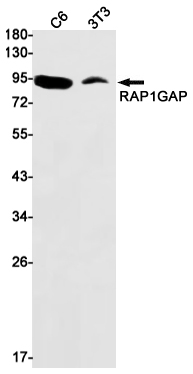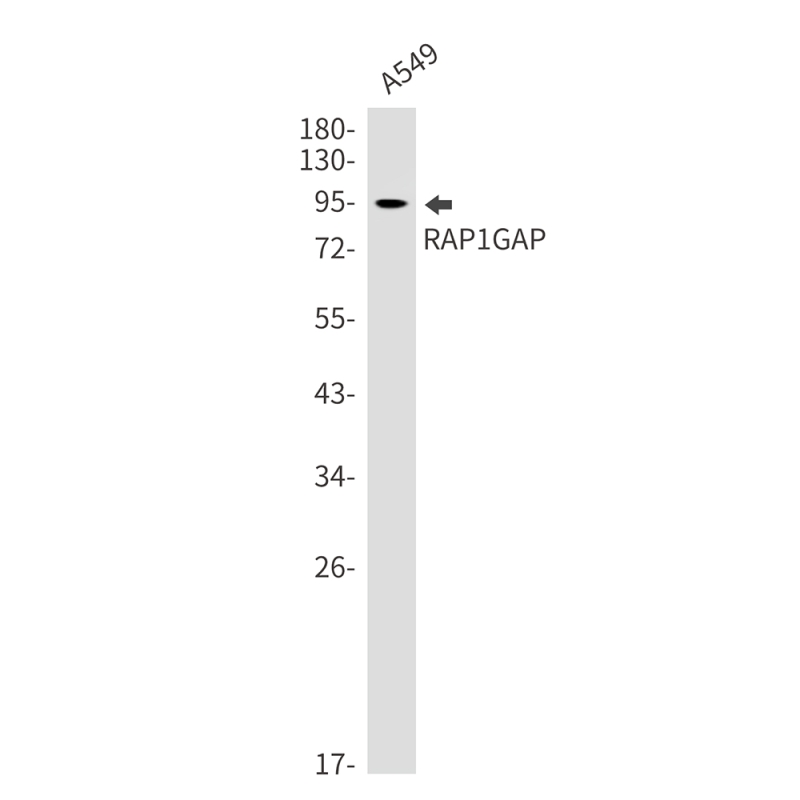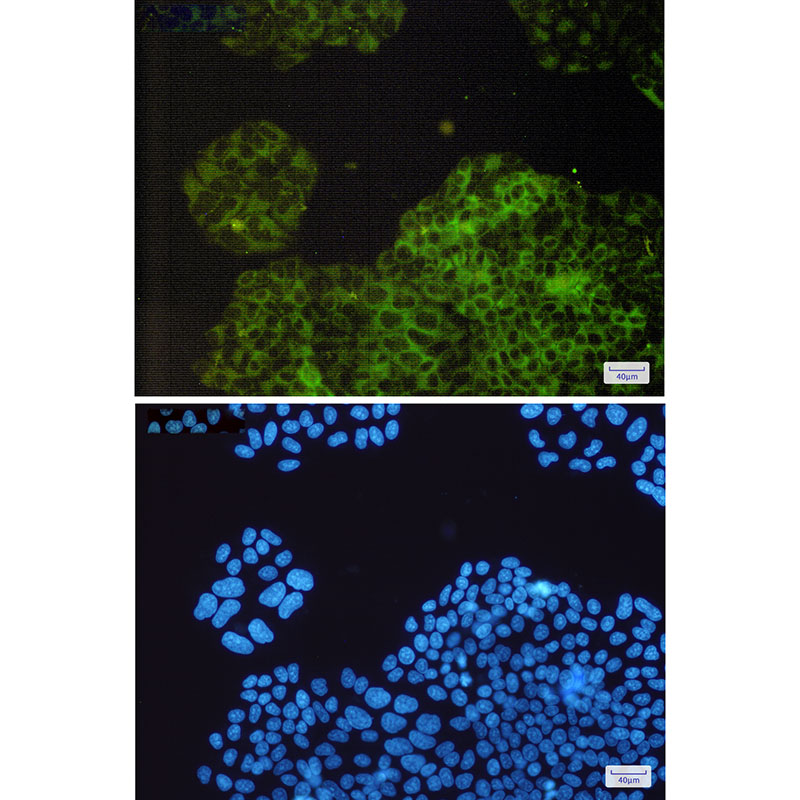


| WB | 1/500-1/1000 | Human,Mouse,Rat |
| IF | 1/20 | Human,Mouse,Rat |
| IHC | 咨询技术 | Human,Mouse,Rat |
| ICC | 1/50-1/200 | Human,Mouse,Rat |
| FCM | 咨询技术 | Human,Mouse,Rat |
| Elisa | 咨询技术 | Human,Mouse,Rat |
| Aliases | RAP1GAP; KIAA0474; RAP1GA1; Rap1 GTPase-activating protein 1; Rap1GAP; Rap1GAP1 |
| Entrez GeneID | 5909 |
| WB Predicted band size | Calculated MW: 73 kDa; Observed MW: 95 kDa |
| Host/Isotype | Rabbit IgG |
| Antibody Type | Primary antibody |
| Storage | Store at 4°C short term. Aliquot and store at -20°C long term. Avoid freeze/thaw cycles. |
| Species Reactivity | Human,Mouse,Rat |
| Immunogen | A synthetic peptide of human RAP1GAP |
| Formulation | Purified antibody in TBS with 0.05% sodium azide,0.05%BSA and 50% glycerol. |
+ +
以下是3篇关于RAP1GAP抗体的文献示例(信息基于公开研究整理,部分内容可能需要通过数据库核实全文):
1. **文献名称**:*RAP1GAP suppresses tumor cell migration via regulation of focal adhesion dynamics*
**作者**:Zhang Y, et al.
**摘要**:该研究利用RAP1GAP抗体进行Western blot和免疫荧光实验,发现RAP1GAP通过抑制RAP1信号通路调控细胞黏着斑动态变化,从而抑制乳腺癌细胞的迁移和侵袭能力。
2. **文献名称**:*RAP1GAP acts as a tumor suppressor in thyroid cancer by modulating RAS/MAPK pathway activity*
**作者**:Wang L, et al.
**摘要**:通过免疫组化(使用RAP1GAP特异性抗体)分析甲状腺癌组织,发现RAP1GAP表达下调与肿瘤进展相关,其缺失导致RAS/MAPK通路异常激活,促进癌细胞增殖。
3. **文献名称**:*Epigenetic silencing of RAP1GAP in melanoma promotes metastatic progression*
**作者**:Chen H, et al.
**摘要**:研究采用RAP1GAP抗体进行染色质免疫沉淀(ChIP)和蛋白表达分析,证实RAP1GAP在黑色素瘤中因DNA甲基化沉默,其缺失通过激活整合素信号通路增强肿瘤转移。
---
**备注**:建议通过PubMed或Google Scholar输入关键词“RAP1GAP antibody”、“RAP1GAP cancer”等获取最新文献。部分研究可能侧重抗体应用(如检测表达水平),而非抗体开发本身。
**Background of RAP1GAP Antibody**
The RAP1GAP (RAP1 GTPase-activating protein) antibody is a tool used to detect and study the RAP1GAP protein, a member of the GTPase-activating protein (GAP) family. RAP1GAP regulates the activity of Rap1. a small GTPase involved in critical cellular processes such as cell adhesion, proliferation, differentiation, and intracellular signaling. By accelerating the hydrolysis of GTP to GDP, RAP1GAP inactivates Rap1. thereby modulating downstream pathways like integrin signaling and MAP kinase cascades.
Research highlights RAP1GAP's role in cancer biology, where its expression is often downregulated in tumors such as thyroid, pancreatic, and breast cancers, correlating with enhanced cell invasion and metastasis. Conversely, in neurodegenerative disorders and diabetic complications, altered RAP1GAP levels have been linked to dysregulated cellular responses.
Antibodies targeting RAP1GAP enable its detection in techniques like Western blotting, immunohistochemistry, and immunofluorescence, aiding in exploring its expression patterns and functional roles. Commercially available antibodies (polyclonal or monoclonal) require validation for specificity via knockout controls or siRNA silencing. Optimal experimental conditions, including antibody dilution and buffer composition, are crucial for reliable results.
Overall, RAP1GAP antibodies are vital for deciphering the protein's contributions to disease mechanisms and its potential as a therapeutic target or diagnostic biomarker.
×